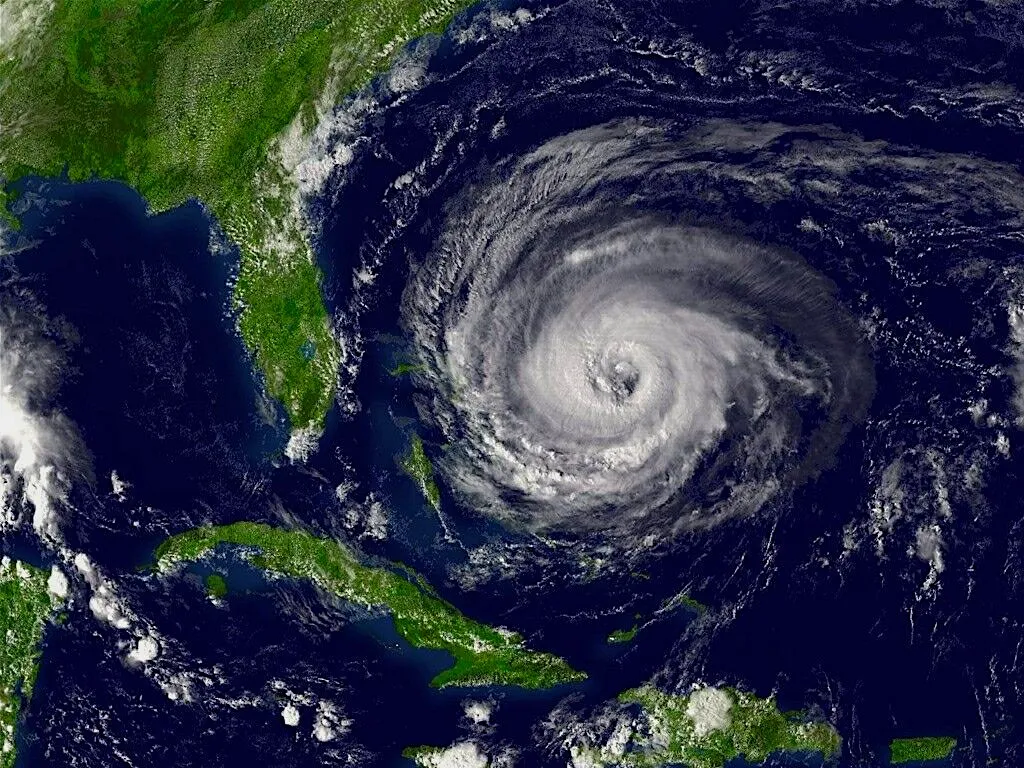
Severe weather is a significant threat to the stability of the nation’s economic and digital infrastructure. When Hurricane Sandy pummeled New Jersey and New York in 2012, it left behind $65 billion in damage, including largescale telecommunications outages that took months to recover from.
While the effects from severe weather can normally be quantified in terms of human casualties and physical wreckage, little is known about weather-related damage that occurs in the “last-mile” internet, the term used to identify the final leg of internet connectivity that reaches a customer’s location.
A team of researchers led by Dave Levin, assistant professor of computer science, and Neil Spring, professor of computer science, recently presented a comprehensive study on the effects of weather events—including normal weather patterns like seasonal rain and snow—as they relate to residential internet outages.
“Residential Links Under the Weather” was authored by Levin, Spring, and UMD alumni Ramakrishna Padmanabhan and Aaron Schulman. Both Padmanabhan and Schulman were advised by Spring while completing their doctoral degrees in computer science at Maryland.
Using software they developed, the researchers were able to quantify the extent and duration of internet outages observed during weather-related events as opposed to periods when weather was not a factor in any of the outages.
“We studied the effect of weather on residential internet links since residential links are often our primary means of connecting to the internet, and these links are continuously exposed to different weather conditions,” says Padmanabhan, the lead author of the paper.
Members of the team recently presented their work at ACM SIGCOMM 2019 in Beijing. SIGCOMM is the flagship annual conference of the ACM Special Interest Group on Data Communication (SIGCOMM) on the applications, technologies, architectures and protocols for computer communication.
When the UMD team began their study, they found that investigating internet outages in residential networks due to weather was challenging because of multiple varied factors. This included different media types, different internet protocols, and different service providers—all in varying contexts of climates and geography.
To address these issues, the researchers performed a large-scale study looking at eight years of active outage measurements that were collected across the bulk of the last-mile internet infrastructure in the U.S.
Using their “ThunderPing” software—which tracks weather forecasts in the U.S. and then pings a sample of 100 hosts from each last-mile provider in an area before, during, and after a weather event—the team analyzed 1,811 days of data, capturing a range of seasonal and regional weather conditions and 101 billion responsive pings to 10.8 million residential addresses.
The dataset showed that a variety of weather conditions can inflate the likelihood of internet dropouts. The researchers also demonstrated that outages vary depending upon the type of weather, link type, and geographic location.
The team says their study can be beneficial to multiple stakeholders: businesses can identify the extent to which they lose customers to commonplace weather events; governments can identify areas that are particularly vulnerable to weather-related outages and promote investment in alternate technologies; and customers can learn which providers in their areas are resilient to different types of weather conditions and make informed choices.
The research was funded by National Science Foundation's Division of Computer and Network Systems grants, the U.S. Department of Homeland Security Science and Technology Directorate, and the Air Force Research Laboratory.
***
Levin and Spring both have appointments in the University of Maryland Institute for Advanced Computer Studies. Padmanabhan graduated from UMD in 2018 and is now a postdoctoral researcher at the Center for Applied Internet Data Analysis at the University of California, San Diego. Schulman graduated from UMD in 2013 and is now an assistant professor at UC San Diego.
—Story by Melissa Brachfeld